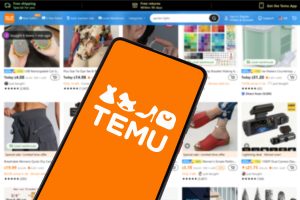Indonesia’s government has asked Google and Apple to block the Chinese e-commerce firm Temu from their local app stores, fearful of the economic impacts of its consumer-to-factory model, Reuters reported on Friday.
Budi Arie Setiadi, the minister of communication and information technology, told the news agency that Jakarta feared that the future of the country’s millions of small and medium-sized enterprises could be undermined by a flood of cheap products from China.
An e-commerce site run by the conglomerate PDD Holdings, Temu connects consumers directly with factories in China, giving them access to a dizzying array of cheap products. Budi told Reuters that the Indonesian government regarded this model, which is underpinned by ruthlessly optimized China-centered logistics networks, as a form of “unhealthy competition.”
“We’re not here to protect e-commerce, but we protect small and medium enterprises. There are millions we must protect,” he said.
While Temu is not yet available in Indonesia, Budi said that the removal of the app was necessary as a pre-emptive measure, given its potentially disruptive impact. He added that the government plans to request a similar block for the Chinese shopping service Shein, which operates on a similar direct-to-consumer model. According to the Reuters report, Apple and Google’s parent company Alphabet have not confirmed receiving the Indonesian request, nor whether they plan to comply with it.
The ban reflects the rapid growth of e-commerce According to the e-Conomy SEA 2023 report, jointly compiled by the tech giant Google, Singapore’s Temasek, and the venture capital firm Bain & Company, Indonesia’s e-commerce sector was worth $62 billion in 2023, and is projected to expand to around $160 billion by the end of the decade.
As Muhammad Zulfikar Rakhmat noted in these pages recently, the Indonesian government has had the website in its crosshairs for some time. In August, Indonesia’s Ministry of Trade rejected the company’s application to register a trademark in the country. The was shortly after Isy Karim, the Trade Ministry’s director general for domestic trade, said that the app’s business model was “not compatible with our policies. Every activity from factory to consumer must have an intermediary, a distributor.”
The reported Temu app ban is just the latest sign of Indonesia’s willingness to throw around its regulatory weight in ensure that cheap imports, particularly from China, do not undermine the interests of its millions of small proprietors and business owners – an important political constituency.
Last year, the government banned e-commerce transactions on social media platforms a move that was widely seen as a response to the sudden popularity of TikTok Shop, an e-commerce platform run by the Chinese video-sharing app. Like the impending ban of the Temu app, the goal of the social media e-commerce ban, as per a senior official, was to “create a fair, healthy and beneficial electronic commerce ecosystem.” TikTok subsequently complied with the law and closed its operations.
In July, the Indonesian government also announced that it would impose import tariffs of up to 200 percent on some products from China, including textiles, clothing, footwear, electronics, ceramics, and cosmetics. Indonesian officials say that cheap imports have caused the closure of textile factories and mass layoffs.

































